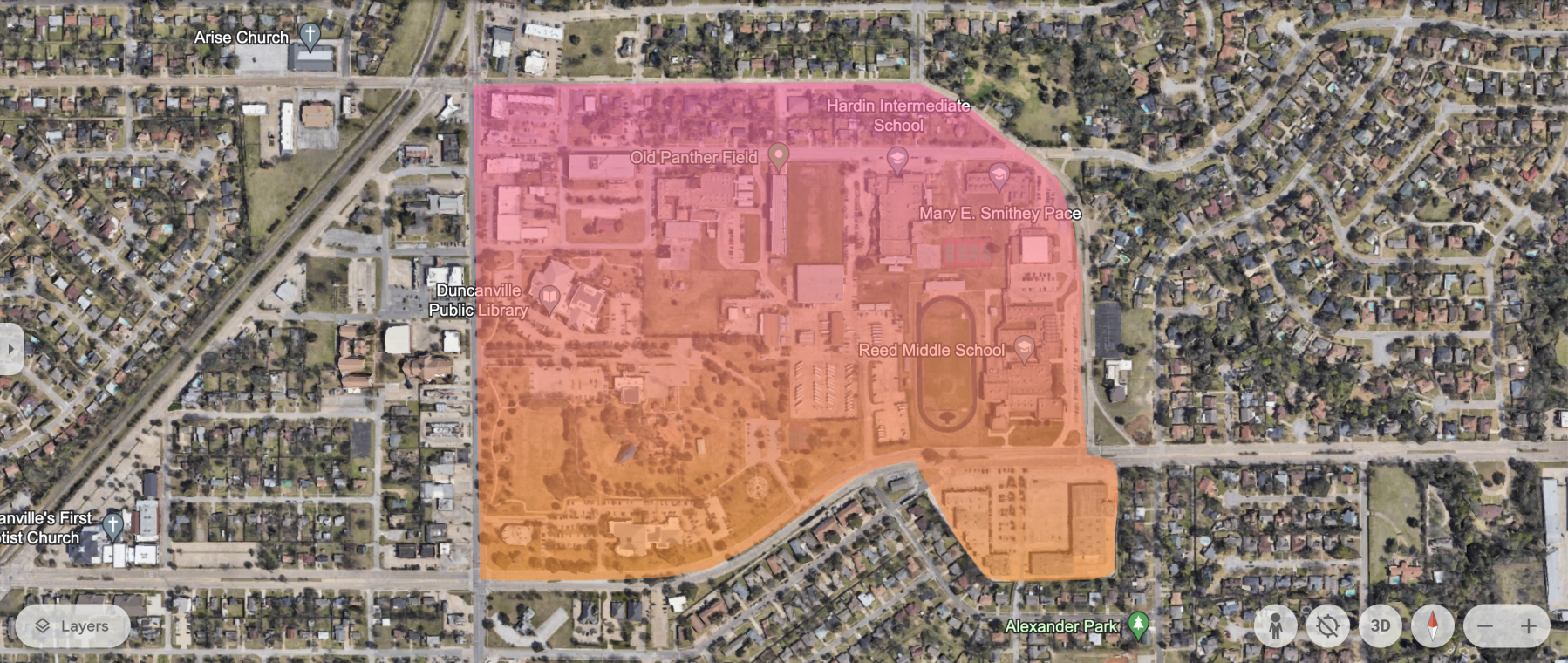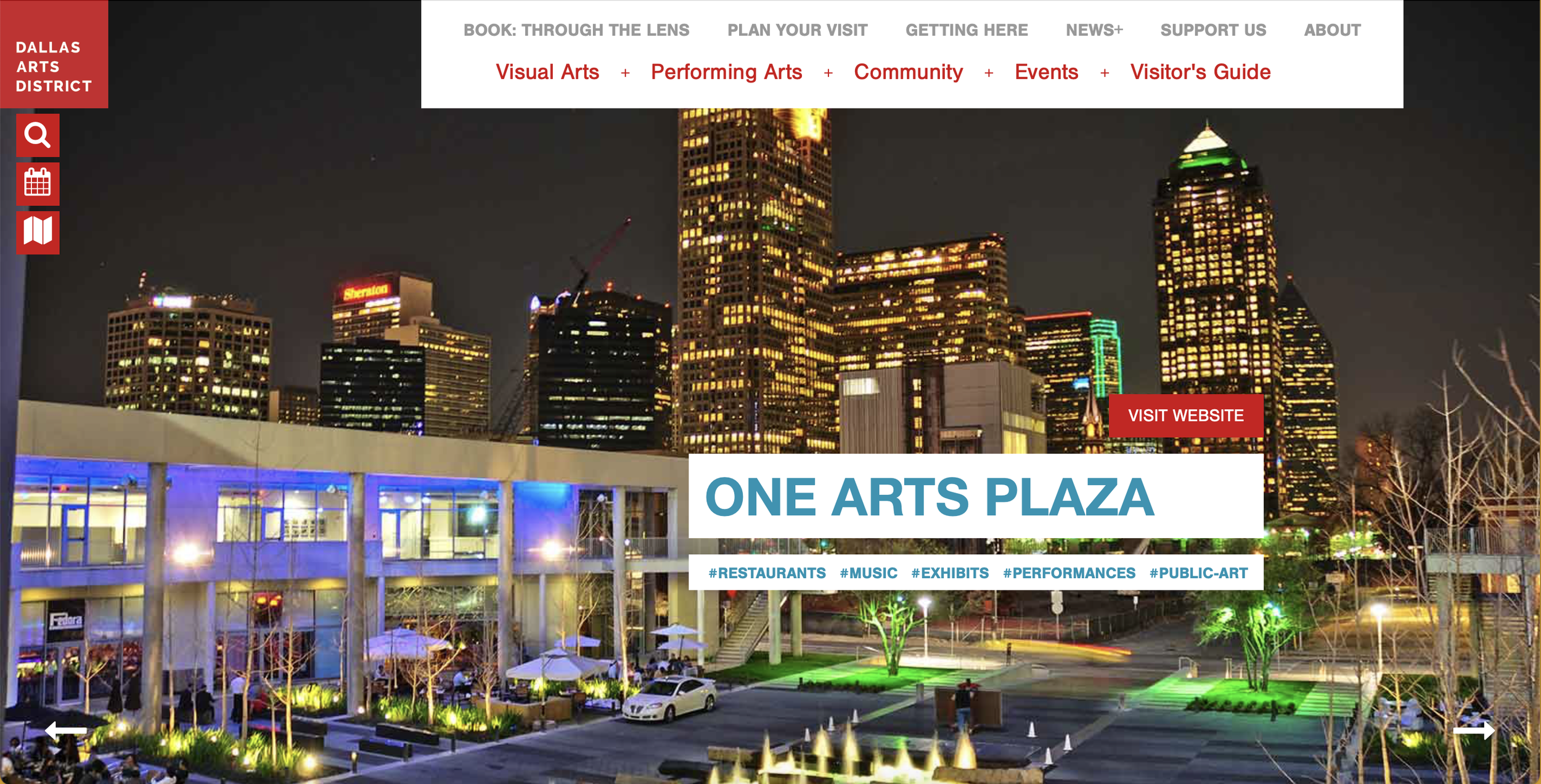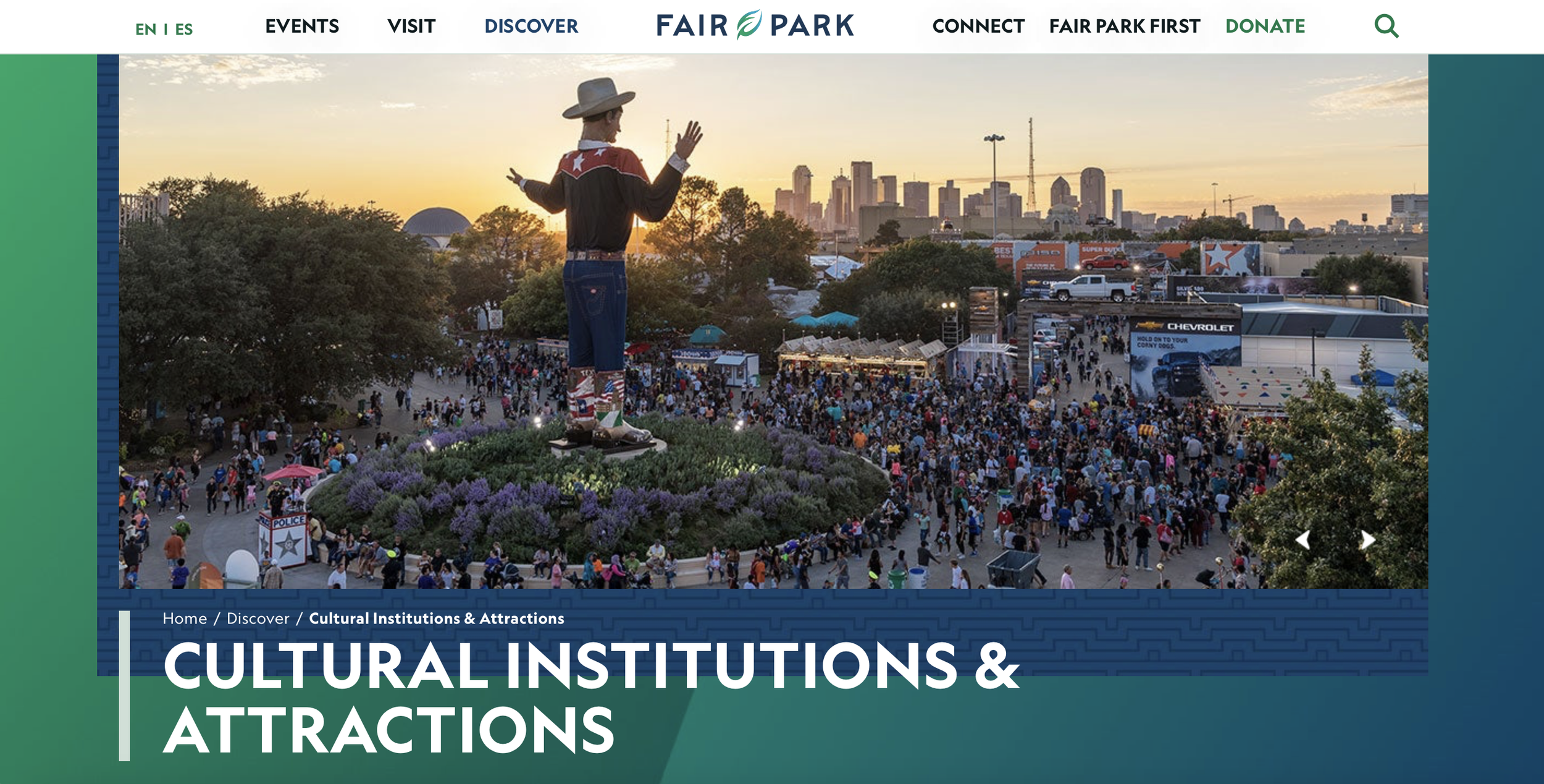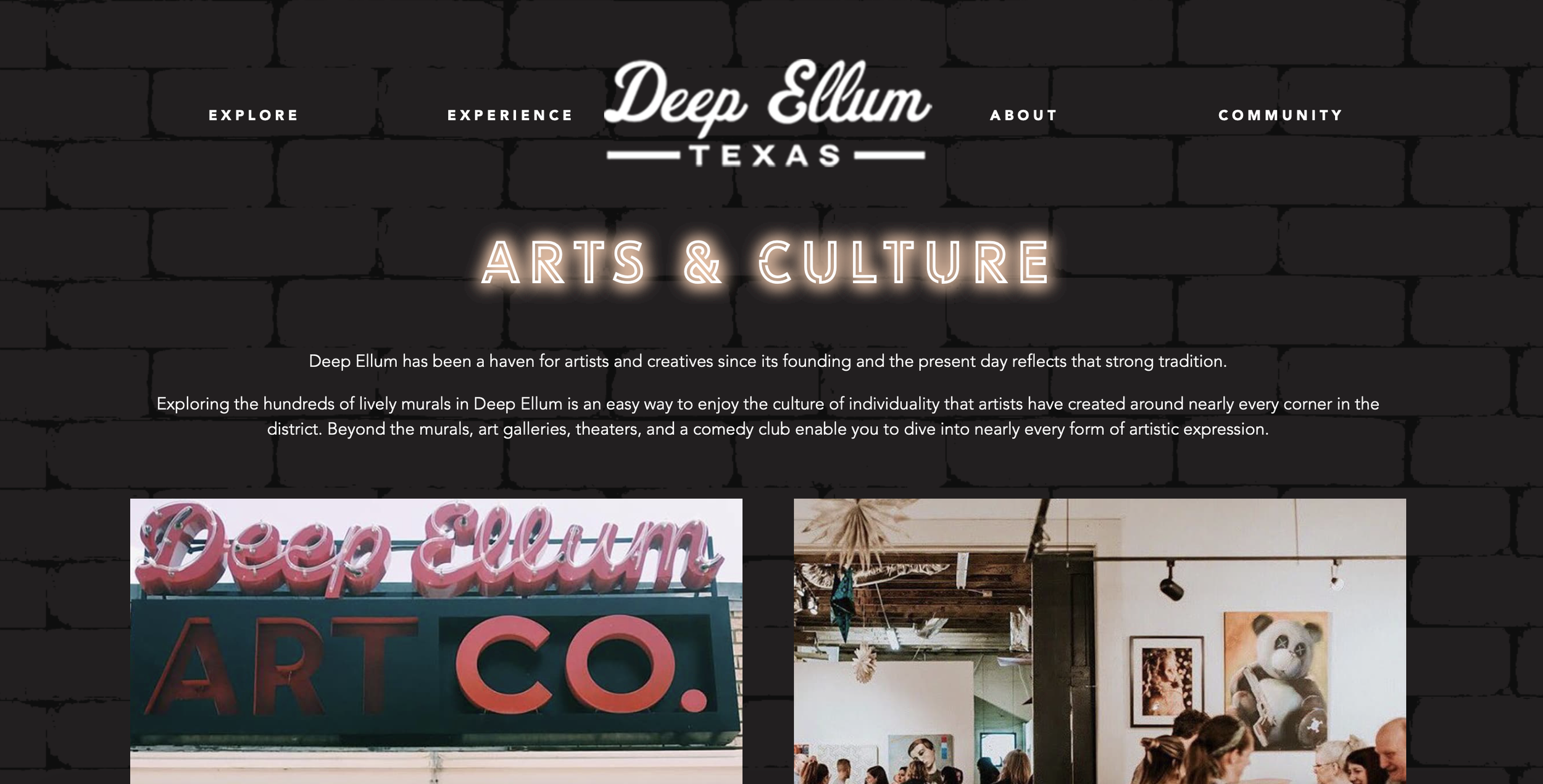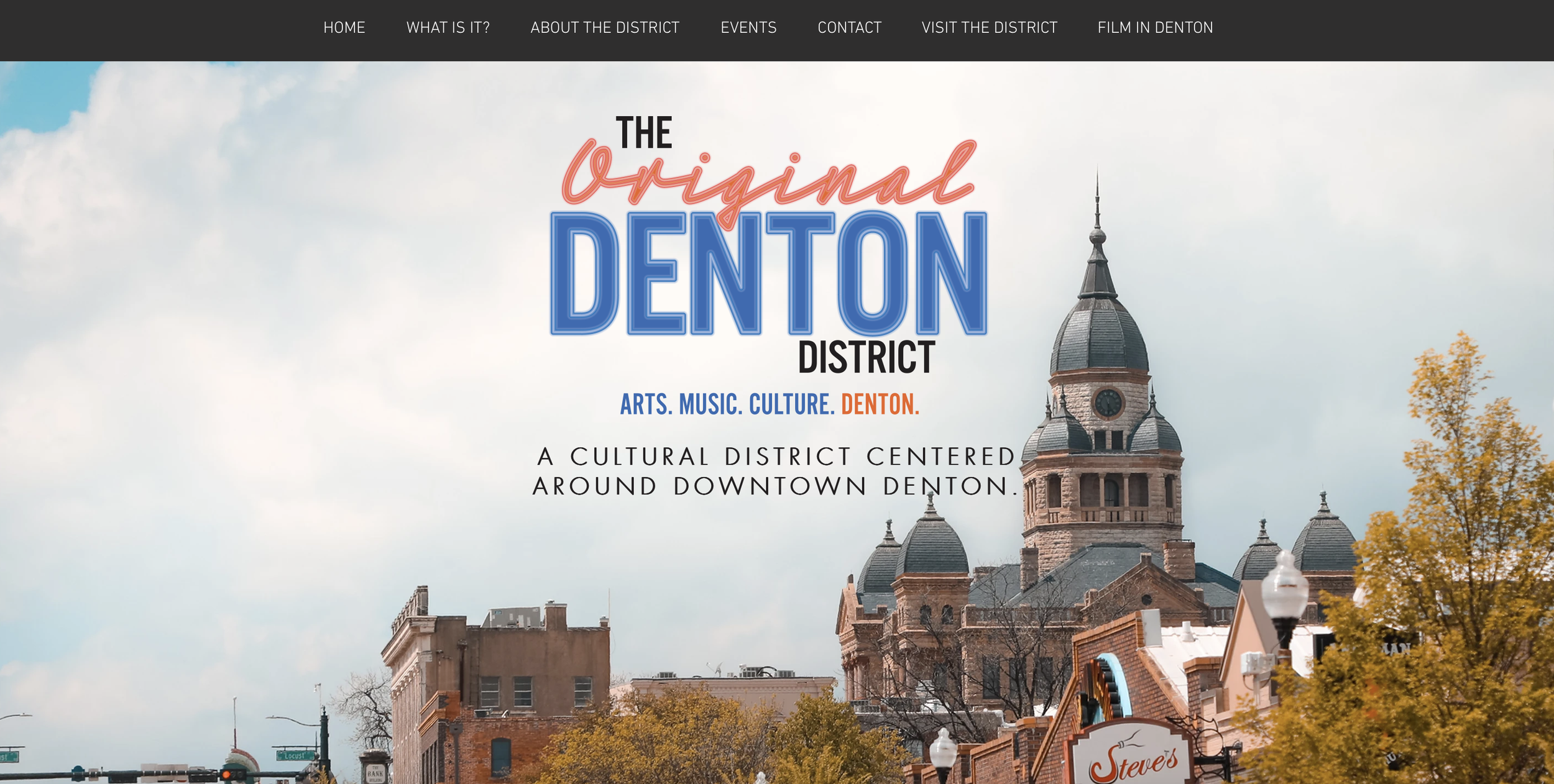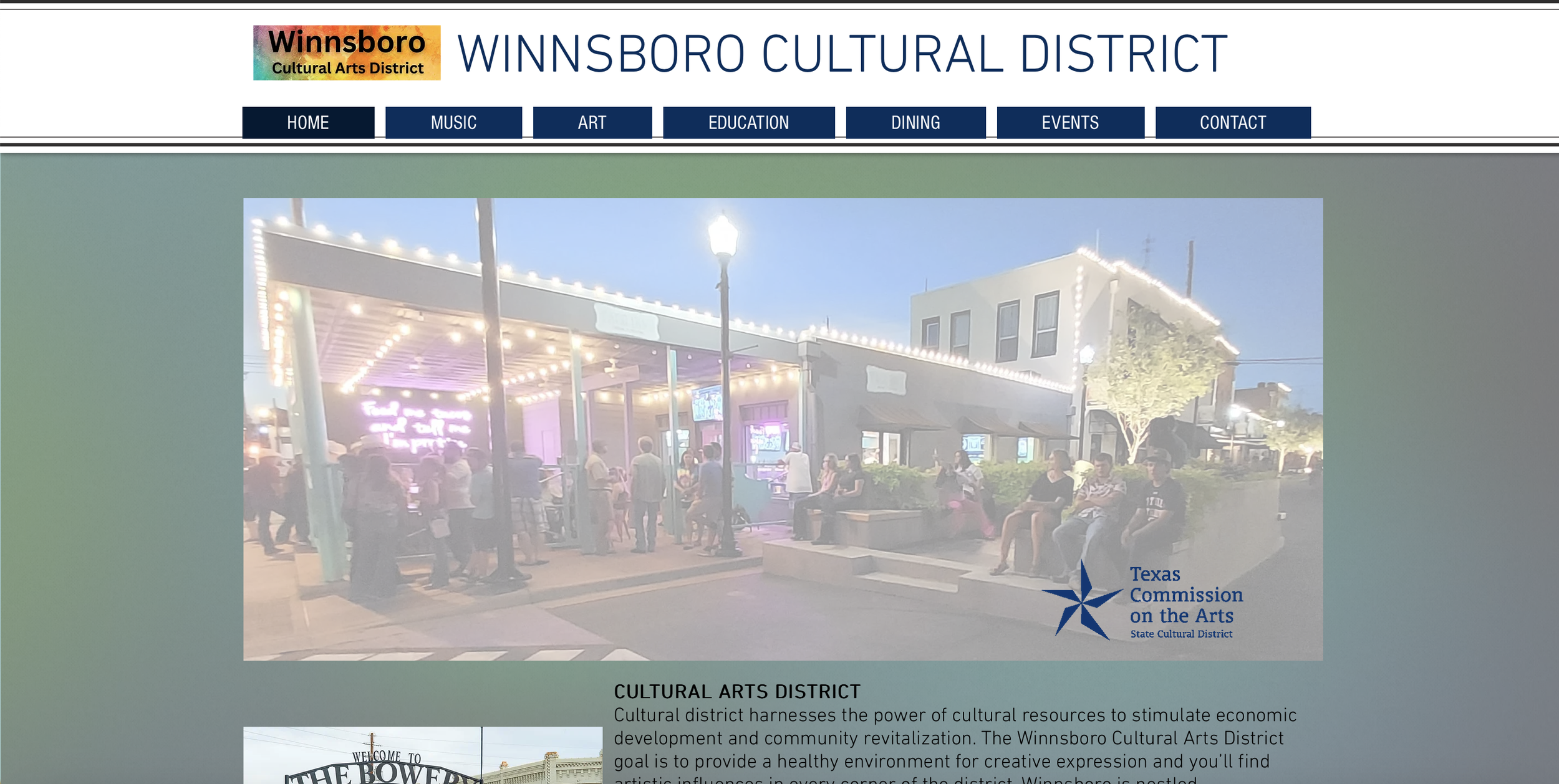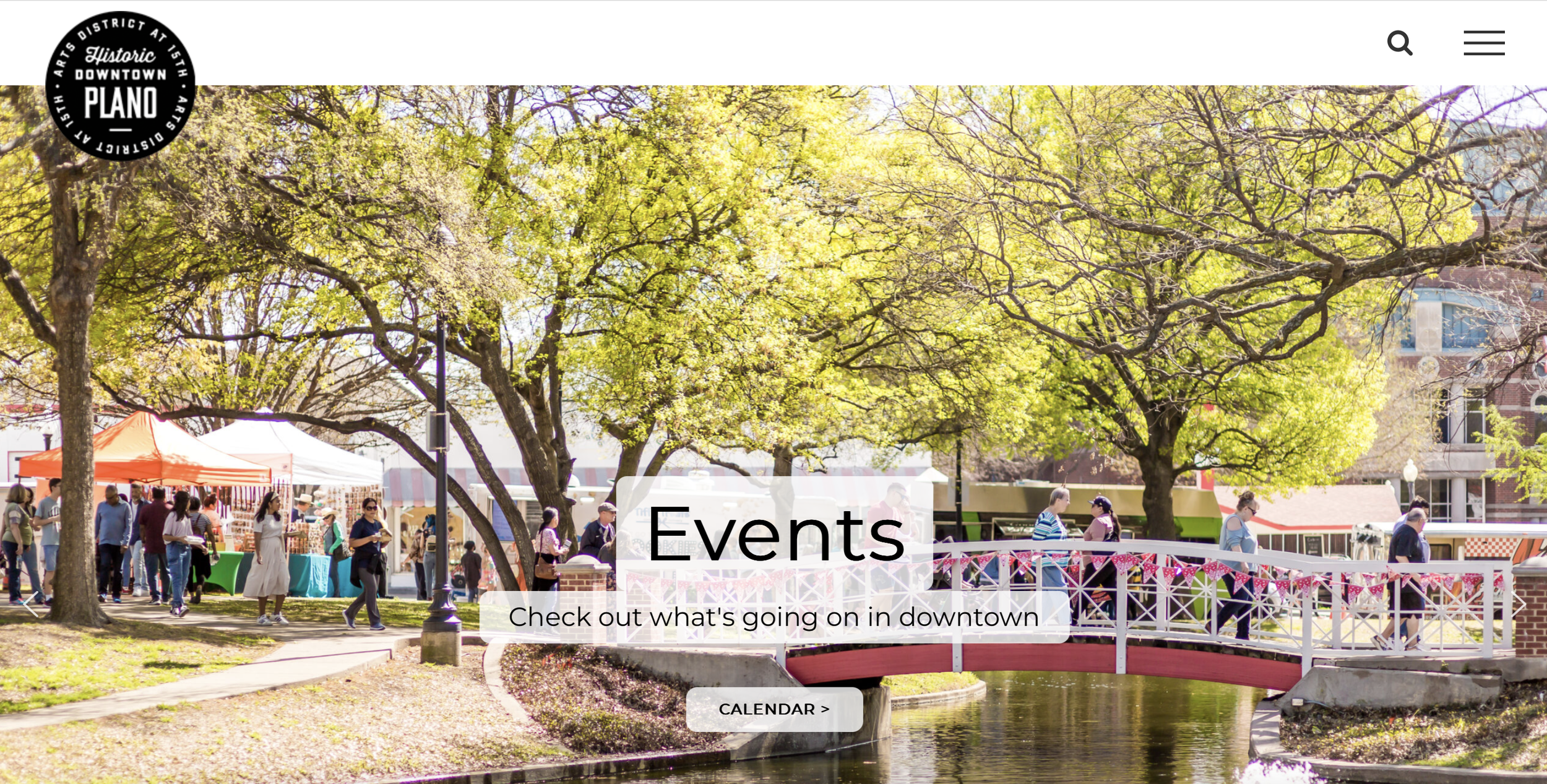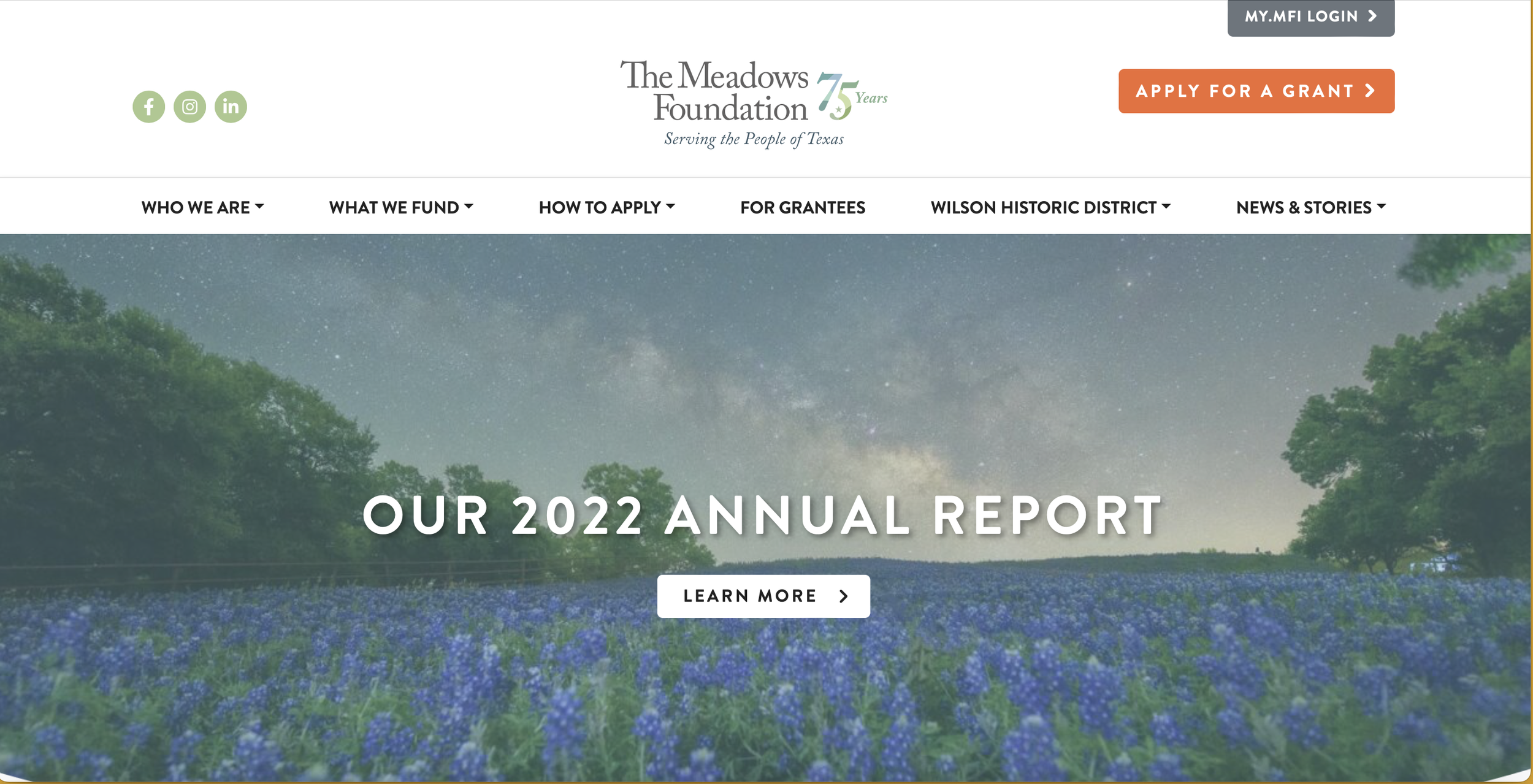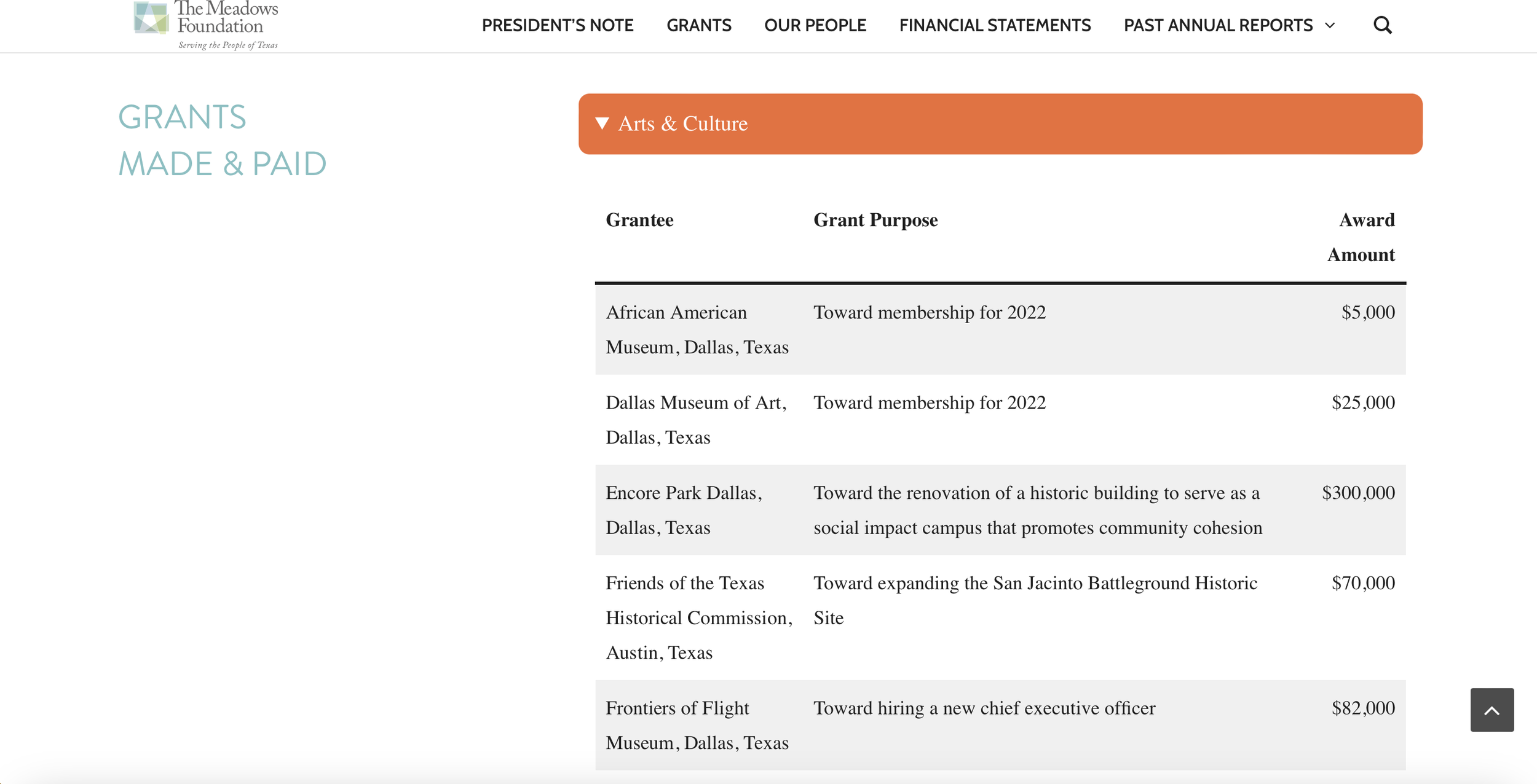Meeting Agenda: Duncanville Arts Commission Joint Meeting with the Duncanville City Council
D.L. Hopkins Jr. Senior Center, 206 James Collins Blvd., Duncanville, TX 75116
Tuesday, June 25, 2024, 6:00 PM
Tuesday, April 23, 2024, 6:00 PM
Tuesday, January 23, 2024, 6:00 PM
Source: City of Duncanville
Item 1. Call to Order.
Welcome and special thanks.
Item 2. Receive public comments.
Please participate. But exercise brevity by limiting your comments to two (2) minutes.
—
At the end of this meeting, we’re going to recommend consideration of:
A line item for the ARTS within City/DCEDC budgets to evaluate current arts funding models and strategies;
Arts Commission has the final say on arts grants, sponsorships, and programming
A line item for CULTURAL DISTRICT and to seed $1MM from the DCEDC HOT fund balance to a CULTURAL DISTRICT DEVELOPMENT FUND to be disseminated through grants and contracts for arts programming, capital development, and capacity building within the proposed cultural district;
Arts Commission has the final say on arts grants, sponsorships, and programming
Recognize and support a nonprofit community-driven CULTURAL DISTRICT FOUNDATION
priority eligibility to contract with the City and DCEDC;
free use of City-owned space and City-owned/managed technology to conduct education, outreach, and fundraising activity
Recognition of October as National Arts and Humanities Month, through a proclamation;
Contract with Texas Guitar Society up to $49K for turnkey arts programs development, deployment, and management, through the end of the current fiscal year to be completed in the next.
—
Arts Commission Duties & Powers
The Commission shall solicit applications for arts events, review and hear requests for funding, schedule interviews, and adopt guidelines and criteria for applicants requesting funding. The Commission will advise the City Council on the expenditure of the hotel/motel tax allocation for the arts. The Arts Commission Chairman, or an alternate representative as designated by the chairman, shall attend all City Council workshops and meetings at which Arts Commission issues are discussed or considered.
The Commission may also seek and administer funding by state, federal, and private grants, gifts, and admission fees as provided herein. They may also decline acceptance of any state, federal, private grant, donation or gift which is subject to terms or conditions which are not acceptable to or performable by the Commission.
The Commission may itself produce and promote a cultural/arts event or projects in addition to and apart from its role as a funding source for Arts Commissions Grants to other groups and individuals. Events or projects may also include a public permanent art component.
Source: City of Duncanville
—
Challenges having never had an Arts Commission
When the Arts Commission was first created, it was done so with a mission statement and certain powers and duties. But, there were no mechanisms in which to operate within the structure of City Hall.
“side hustle”
Arts funding is derived from multiple disparate sources tied to the knowledge bank of individual City staff members.
Decisions for funding to the arts is siloed outside the purview of the Arts Commission.
HOT fund distribution to the Arts outside the purview of the Arts Commission is a fragmented and inequitable (reimbursement vs. grant) approach making it difficult to maximize resources, hinders strategic arts development, and lacks transparency.
Commission and staff are at capacity bandwidth
Difficult to access to information about arts-related funding
Limited pathways to respond to community enthusiasm
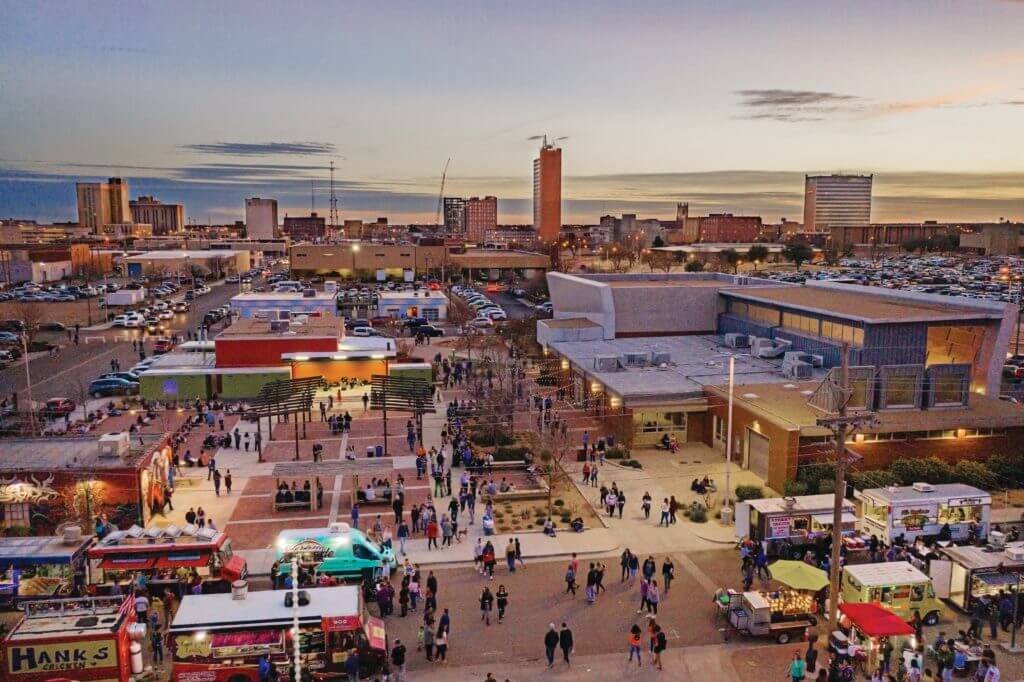
Item 3. Briefing on proposed Cultural District.
Duncanville Arts Commission, March 26, 2024
—
Proposed cultural district
Designate the first cultural district in Duncanville and the Best Southwest region, through the Texas Commission for the Arts, with Armstrong Park at the heart, including adjacent walkable areas along Main Street, E. Center, and E. Wheatland Road.
—
What is a cultural district?
“As authorized by H.B. 2208 of the 79th Legislature, the Texas Commission on the Arts (TCA) can designate cultural districts in cities across Texas. Cultural districts are special zones that harness the power of cultural resources to stimulate economic development and community vitality. These districts can become focal points for generating businesses, attracting tourists, stimulating cultural development and fostering civic pride.”
Source: Texas Commission on the Arts
—
Goals of cultural districts
“…a thriving creative sector is a powerful economic development asset. Cultural district designation is one strategy that helps a community boost their economies while realizing other cultural and civic benefits. The outcomes of cultural districts extend beyond the arts and can benefit all members of a community.”
Source: Texas Commission on the Arts
—
Attracting artists and cultural enterprises to the community.
“Artists, cultural institutions and creative enterprises all contribute to a community’s economic potential. Not only do they generate direct economic activity, but artists and creative entrepreneurs infuse communities with energy and innovation.”
Source: Texas Commission on the Arts
—
Encouraging business and job development.
“Cultural districts can create a hub of economic activity that contributes to the community being an appealing place to live, visit and conduct business. A thriving cultural scene helps an area to prosper when consumers drawn to cultural attractions patronize other nearby businesses. This can result in the creation of new economic opportunities and jobs.”
Source: Texas Commission on the Arts
—
Addressing specific needs of a community.
“Cultural districts are a highly adaptable economic development approach that allows a community to make use of unique conditions, assets and opportunities.”
Source: Texas Commission on the Arts
—
Establishing tourism destinations.
“Cultural districts are marketable tourism assets that highlight the distinct identity of a community and encourage in-state, out-of-state, and international visitors.”
Source: Texas Commission on the Arts
—
Preserving and reusing historic buildings.
“Some cultural districts are very involved in historic preservation. Adaptive reuse and rehabilitation of older buildings through preservation tax credits can result in structural and façade improvements. These rehabilitated buildings provide opportunities for affordable artist live/work space and new homes for cultural organizations.”
Source: Texas Commission on the Arts
—
Enhancing property values.
“Successful districts combine improvements to public spaces (such as parks, waterfronts and pedestrian corridors) along with property development. The redevelopment of abandoned properties, historic sites, and recruiting businesses to occupy vacant spaces can contribute to reduced vacancy rates and enhanced property values.”
Source: Texas Commission on the Arts
—
Fostering local cultural development.
“The establishment of a cultural district provides a focal point for celebrating and strengthening a community’s cultural identity. Cultural districts highlight existing cultural amenities and work to recruit and establish new artists, cultural industries and organizations.”
Source: Texas Commission on the Arts
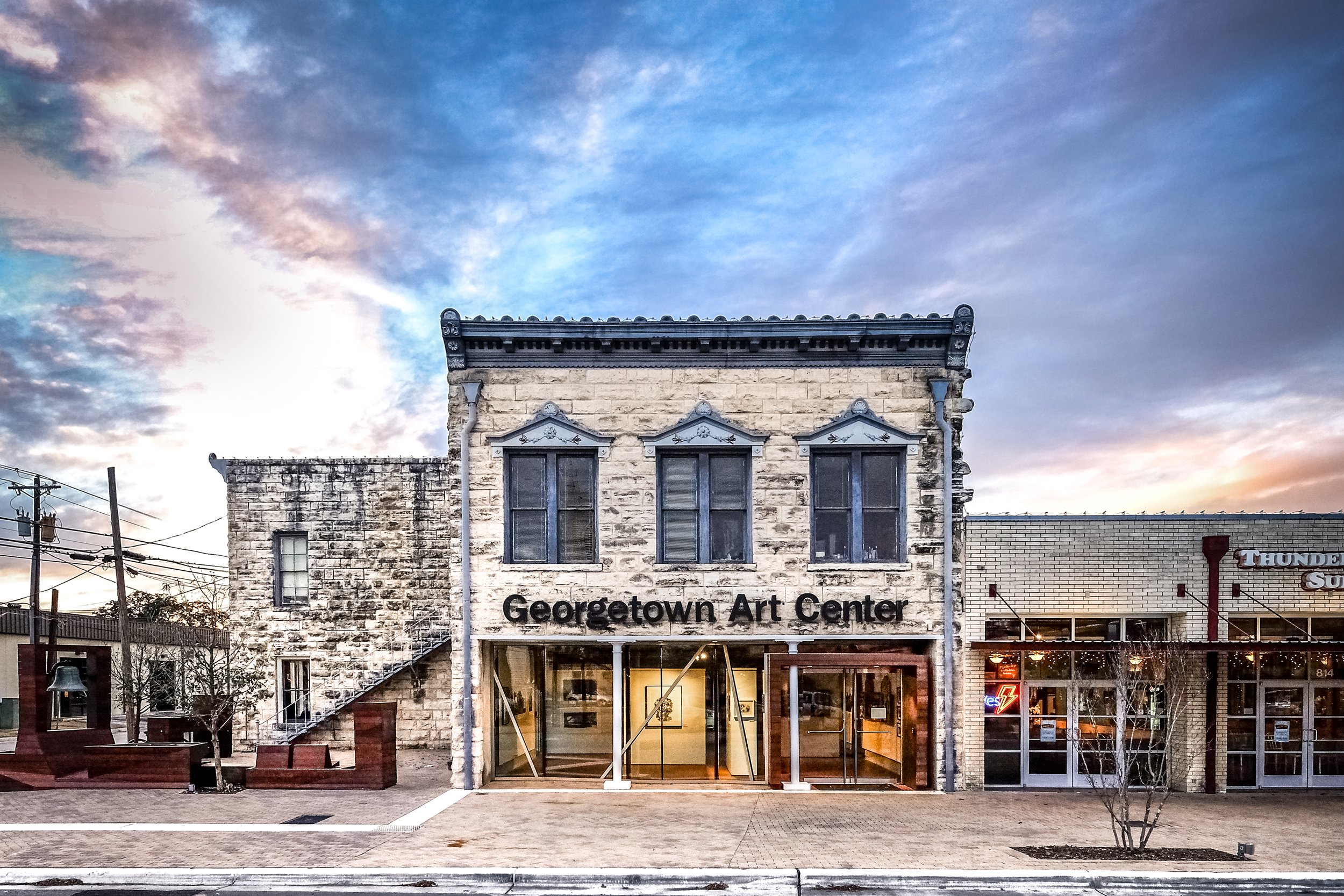
—
State of the Arts Report, 2023
“… the impact of public grant funding for Cultural Districts far surpassed the initial public investment, earning a 2-to-1 return on investment ...”
Source: Leslie Ward, Board Chair, Texas Cultural Trust; The Longterm Growth of Cultural Districts: Four Case Studies
—
54 cultural districts in Texas
Source: Texas Commission on the Arts
—
3 cultural districts in Dallas County
—
0 cultural districts south of Dallas
Source: Texas Commission on the Arts
—
“Cultural districts can be part of creative placemaking or placekeeping efforts. It’s important to remember that TCA cultural district designation is most likely to be awarded to a district that is already defined in terms of leadership, geographic boundaries, branding, and current assets.”
Source: Texas Commission on the Arts
—
Cultural districts do not change current zoning and our application won’t require new City funding. It will, however, require we all come together.

Item 4. Briefing on proposed 501(c)3 Cultural District Foundation.
Duncanville Arts Commission, March 26, 2024
—
A home for a community of patrons to embrace the Arts in Duncanville.
Community-driven stakeholder development able to act as intermediary on activity that has municipal restrictions for City staff, departments, boards, and commission, including fundraising, resource management, outreach, education, and awareness projects.
Source: Dallas Jazz Appreciation Month
—
Arts Incubator
Event
Cultural District
Cultural District Foundation
City Commission/Department
Visitor Center
Private Foundation
Arts Funding Organization
Texas Commission for the Arts
Cultural District Businesses and Vendors
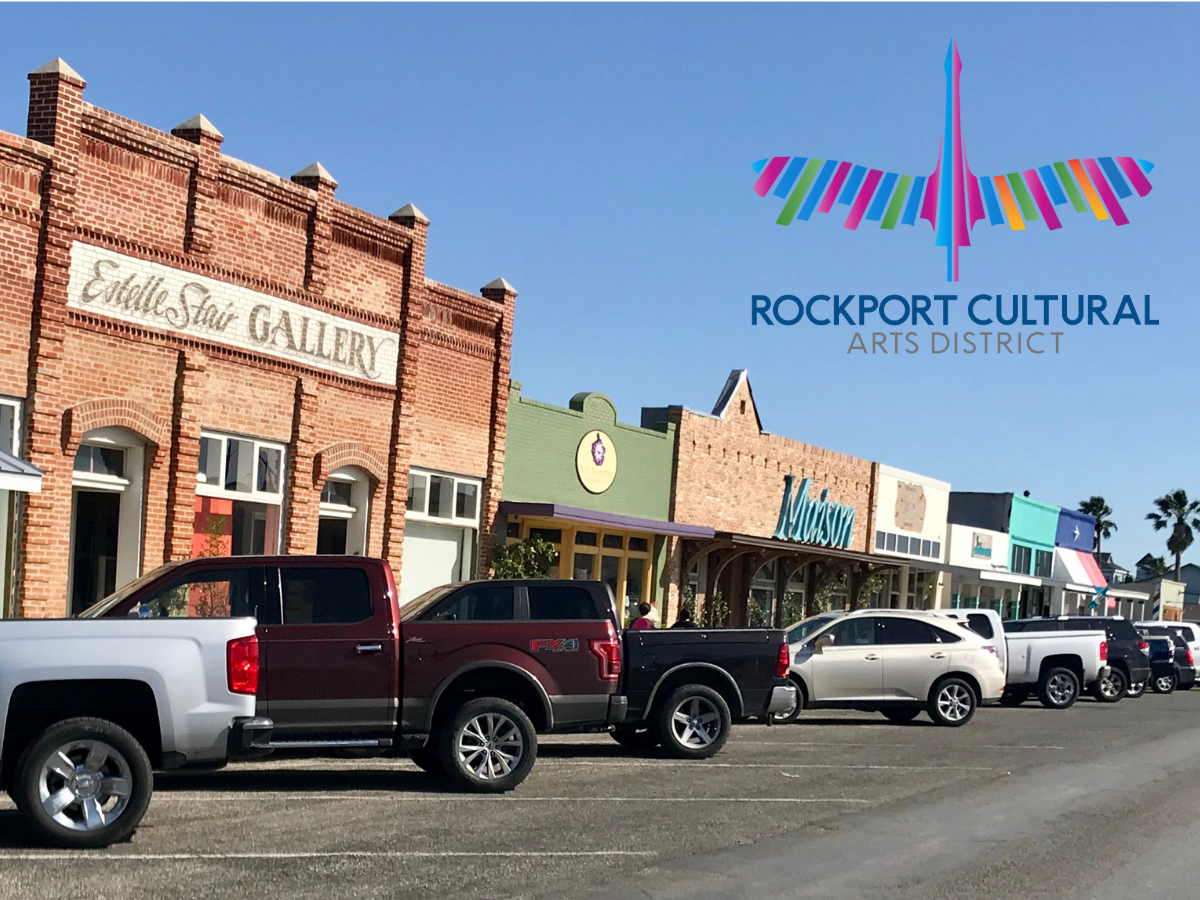
Item 5. Briefing on proposed Cultural District programming.
Duncanville Arts Commission, March 26, 2024
—
A line item for the Arts.
within City/DCEDC budgets to evaluate current arts funding models and strategies throughout the City
—
A line item for the Cultural District
and seed $1MM from the DCEDC HOT fund balance to a CULTURAL DISTRICT DEVELOPMENT FUND to be disseminated through grants and contracts for arts programming, capital development, and capacity building within the proposed cultural district.
—
Suggested Funding Source: Duncanville Community & Economic Development Corp.
2023 Annual Report Filing
—
Total Revenue: $3,028,186
Total Expenditures: $1,608,666
Fund Balance: $6,842,493
Source: Texas Comptroller’s Office
—
Broadened eligibility for HOT funds?
“As authorized by H.B. 2208 of the 79th Legislature, the Texas Commission on the Arts (TCA) can designate cultural districts in cities across Texas. Cultural districts are special zones that harness the power of cultural resources to stimulate economic development and community vitality. These districts can become focal points for generating businesses, attracting tourists, stimulating cultural development and fostering civic pride.”
Source: Texas Commission on the Arts
—
Grants & Sponsorships
Biannual grantmaking cycle to artists, arts organizations, and businesses wanting to partner with them.
Grants reviewed and approved by Arts Commission with participation from community panels
Funded by DCEDC
For proposed cultural district funding, grants could be disseminated, managed, and tracked by 501(c)3.
—
Capital Improvement Funding
Hopkins Center (Parks & Rec Joint Session)
Poe-Hobden Amphitheater
Music Room
Outdoor exhibitions
Signage
Way finding from other parts of town and highways to cultural district
—
Capacity Building
Fund administration
Leadership development
Endowment building
Fundraising training
Stakeholder development
City Hall management
—
Cultural District Tourism Campaign
Exhibitions
Performances
Arts Incubation
Artist Residency
Restaurants
Galleries
Events
—
Art begets art. Money begets money.
This is what transparency means for arts funding and could look like in Duncanville.
Stakeholders would appreciate this degree of transparency;
This degree of transparency will attract new stakeholders.
—
The proposed cultural district needs to be treated like a cultural district NOW
Puts the onus of the community not City Hall to create and lean into arts-forward opportunities
Takes the most loved piece of property in Duncanville and gives the community more reasons to love it
Stakeholder development brings the community together and puts the decision making power out of City Hall and into the community
Attract outside funding from the State and institutional funders
Establishes a platform for individual audience-donor development
Support Main Street development
Enhance DISD amenities within the proposed cultural district
Encourage business growth and retention within the proposed cultural district and possibly adjacent areas
Supports current cultural development while encouraging new; IE: festivals and arts market
Strengthens existing cultural facilities;
Armstrong Park and all amenities,
Duncanville Community Theatre,
Duncanville Public Library,
Hopkins Center,
Lions Club,
Chamber of Commerce/Visitor Center
Foster a thriving arts sector; including artist entrepreneurs and arts-forward retail
Creates audience interest for other parts of town; IE: Camp Wisdom entertainment district
Presents renewal solutions for underutilized property within the proposed cultural district and adjacent areas
Magnet for arts-adjacent industries; IE: restaurants, gift shops, art supplies, construction, printing, video, technology
Activates incubator and collaboration models
Provides a platform for robust marketing, branding, and visitor attraction campaigns
Puts the onus on the community, not City Hall, to create and lean into arts-forward opportunities
Requires no new funding from City budget
Does not change current zoning
Applies accumulated hotel occupancy tax collections for intended purposes in a comprehensive, collaborative approach.
Cultural District Foundation and Arts Commission can advise the new comprehensive planning committee but recommend it not become contingent on the committee; breaking any forward progress. Let the community create our own cultural identity organically.

Item 6. Open discussion to receive feedback and recommendations from the City Council regarding Items 3 through 5 of this agenda and other responsibilities as described in the Arts Commission's charter.
—
Briefing on proposed Cultural District.
Briefing on proposed Cultural District Foundation, 501(c)3.
Briefing on proposed Cultural District programming.
Item 7. Recommend Fiscal Year 2024 funding for an agreement between the City of Duncanville and Texas Guitar Society for arts-related programming.
—
Projects in motion - Growing Pains
Quarterly Arts & Business Mixers
Juneteenth Art Exhibit, June 2024 & 2025
Mexican Independence Day Art Exhibit, Sept. 2024 & 2025
Community Mural Program, 2025
Arts Festival & Market, Spring 2025
Arts Preview Week, September 13 to 21st
October is National Arts & Humanities Month
Art Film & Discussion Series
Arts-focused podcast
Hands-On Arts experiences, e.g. classes, seminars, workshops, makerspace
Christmas Parade Event
Our unique role for the Arts in North Texas
—
Texas Guitar Society
Contract with Texas Guitar Society up to $49,500 for turnkey arts programs development, deployment, and management, through the end of the current 2023/24 fiscal year, to be completed in the next 2024/25 fiscal year.
Resident recommendation
“Our mission is to bring together guitar enthusiasts and provide a platform for them to share their passion and talent through virtual and in-person events. We connect venues, galleries, museums, cities, and artists. We also offer an online store where musicians can connect, discover performance opportunities, and shop for musical instruments and gear.”
“Our values are rooted in the belief that all artists should be fairly paid for their work and art. Support can be privately funded for the artist growth and success. As a private organization, we offer a capitalist solution - in an organic market we believe it is best to serve the community in a private business model - as opposed to relying on a non-profit 501(c)(3) organization.”
Item 8. Presentation on Arts and Humanities Month in October with recommendation that Duncanville recognize this annual celebration through a mayoral proclamation.
—
October is National Arts & Humanities Month
National Arts & Humanities Month was established in 1993 and is celebrated every October[1] in the United States. It was initiated to encourage Americans to explore new facets of the arts and humanities in their lives, and to begin a lifelong habit of participation in the arts and humanities. It has become the nation's largest collective annual celebration of the arts and humanities.
National Arts and Humanities Month's four goals are:
To create a national, state and local focus on the arts and humanities through the media,
To encourage the participation of individuals, as well as arts, humanities and other organizations nationwide,
To provide an opportunity for federal, state and local business, government and civic leaders to declare their support for the arts and humanities,
To establish a highly visible vehicle for raising public awareness about the arts and humanities.
Source: National Assembly of State Arts Agencies
—
Proposed calendar leading up to new fiscal year and National Arts & Humanities Month
Sept. 15-16 — Mexican Independence Day Celebration (performance exhibition with visual art)
Texas Guitar Society
Sept. 17 — City Council Meeting - Proclamation for National Arts & Humanities Month
Sept. 22-28 — Duncanville Arts Week at multiple sites in the proposed cultural district
Texas Guitar Society
Sept. 24 — Arts Commission Regular Meeting
Sept. 30 — Arts Commission Reception for City stakeholders and community members
Texas Guitar Society
Oct. 1 — Start of National Arts & Humanities Month and new fiscal year programming
Texas Guitar Society and others
Item 7. Closing remarks from the Arts Commission Chair.
—
Summary
The Arts is a multi-billion dollar industry we need to participate in.
Activity leading up to applying for cultural district designation by the Texas Commission on the Arts will bring the community together, establishing foundational changes to Duncanville. A successful application will make the cultural district eligible for new funding from the State and other institutional funders, in ways that would otherwise be unrealized.
The Arts belong to everyone; get funding and decision-making out of City Hall and into the community. City Councils change, boards and commissions change, staff changes — the arts need a reliability and endless bandwidth.
Funding policy by City Council for the Arts
Artists will create a unique identity for the community.
Events are one product of a robust arts sector, not the sole end result.
What can City Council members do now?
A line item for the ARTS within City/DCEDC budgets to evaluate current arts funding models and strategies;
Arts Commission has the final say on arts grants, sponsorships, and programming
A line item for CULTURAL DISTRICT and to seed $1MM from the DCEDC HOT fund balance to a CULTURAL DISTRICT DEVELOPMENT FUND to be disseminated through grants and contracts for arts programming, capital development, and capacity building within the proposed cultural district;
Arts Commission has the final say on arts grants, sponsorships, and programming
Recognize and support a nonprofit community-driven CULTURAL DISTRICT FOUNDATION
priority eligibility to contract with the City and DCEDC;
free use of City-owned space and City-owned/managed technology to conduct education, outreach, and fundraising activity
Recognition of October as National Arts and Humanities Month, through a proclamation;
Contract with Texas Guitar Society up to $49K for turnkey arts programs development, deployment, and management, through the end of the current fiscal year to be completed in the next.

